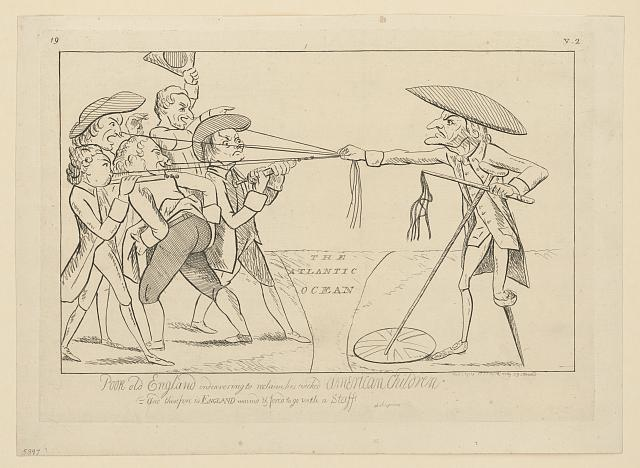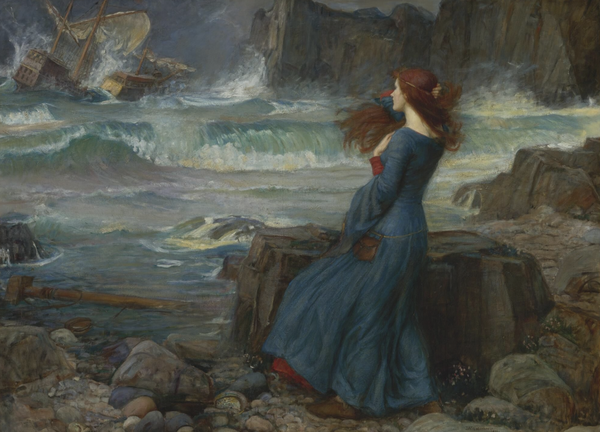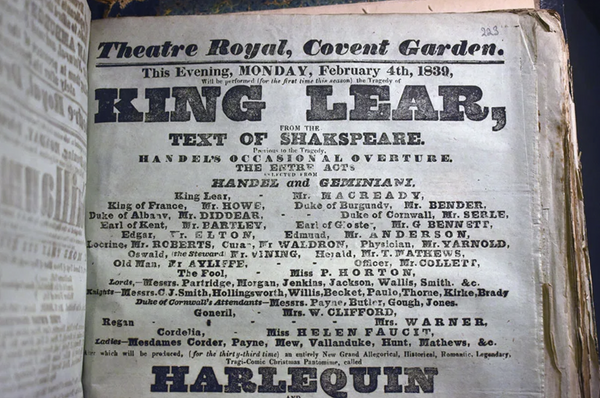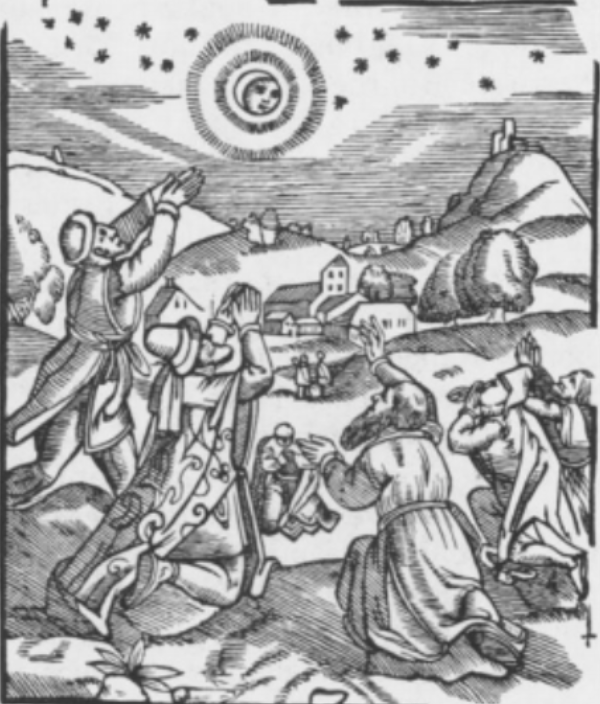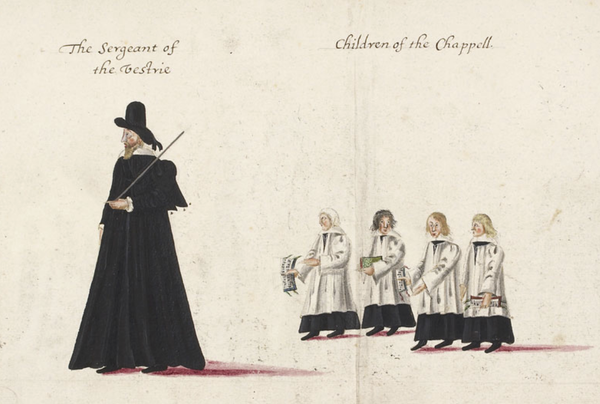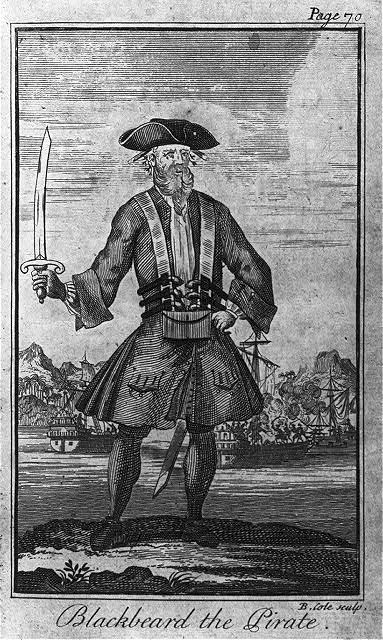The Hatch and Brood of Time Volume 9: November 23, 2020
By London Johns
There are few mentions of the American colonies in Shakespeare’s works. Throughout all of his plays, the word “America” appears only once, in The Comedy of Errors; Antipholus and Dromio of Syracuse mock a “spherical” woman who pursues Dromio, and when they try to identify countries in the features of her body, Dromio claims that America can be found on her nose (Shakespeare 79). Though The Tempest may also have been inspired by the colonization of America, Shakespeare seemed to be for the most part uninterested in the British colonies. However, the colonies were not uninterested in Shakespeare. From the mid-seventeenth century to the Revolutionary War, Shakespeare’s plays were in turns criticized and adored, considered propaganda and used as a language of revolution. By the end of the Revolutionary War, Shakespeare had become one of the most popular playwrights in America, and his plays had taken root in American culture.
There is no evidence of Shakespeare’s plays being performed in the British colonies until the mid-18th century. This was partly due to the Puritan belief that theater itself was immoral. Puritans were adamantly opposed to the theater, claiming that it promoted idleness, crossdressing, and adultery. They believed that plays not only necessitated that actors commit sins, but that by watching plays, viewers would be tempted to commit those acts themselves. William Prynne, an English Puritan author, questioned in 1633,
doe not… the wanton gestures; the amorous kisses, complements, and salutes; the meretricious songs and speeches; the lascivious whorish Actions; the beautifull faces; the ravishinge Musicke, the flexanimous enticements, the witty obscenities, the rhetoricall passages, the adulterous representations, with al the other fomentations of uncleannesse in the Play-house… even raise a tempest of unchaste affections; yea kindle a very hell of lusts within your soules?” (qtd. in Morgon 342)
The acts that Prynne believed would tempt audience members were common aspects of Shakespeare’s plays. Puritans would have resented Shakespeare for the depiction of these acts onstage, as well as the possibility that theaters spread the plague. There was no place for Shakespeare’s plays to be performed in the colonies.
Trends in England also caused a lack of interest in Shakespeare in America. The King’s Players discouraged the publication of Shakespeare’s plays in quarto form, fearing that increased readership would discourage potential audience members from viewing his plays in person (a concept that may be familiar to modern theatergoers waiting for professional recordings of Broadway plays and musicals) (Willoughby 46). The banning of London theaters at the beginning of the English Civil War and the creation of new, more fashionable plays during the Restoration pushed Shakespeare’s plays to the wayside in the latter half of the seventeenth century, both in England and America.
Though productions of Shakespeare’s plays were rare or nonexistent in seventeenth-century America, written versions of his works began to appear. A list of books owned by a man called Edward Dale recorded that he was in possession of a copy of Shakespeare’s Second Folio in 1770 (Ziegler), and the inventory of Arthur Spicer’s library in Virginia listed a copy of Macbeth which he must have purchased between 1673 and 1700 (Willoughby 48). Shakespeare’s works gathered enough influence in the colonies that when the first theaters opened in the mid-18th century, Shakespeare became the most popular playwright in the colonies; between the first known American performance of a Shakespeare play in 1750 and the beginning of the American Revolution in 1778, fourteen or fifteen of his plays were presented between one hundred and eighty and five hundred times (Levine 37).
During the American Revolution, Shakespeare’s plays gave both armies a common language. The representation of British history and culture in Shakespeare’s plays made them an ideal vessel for patriotic British ideas, and English authors alluded to Shakespeare’s work in various forms of political messages. A 1777 political cartoon showed England trying to draw the colonists in by their noses, above a caption stating that England was “maimed & forc’d to go with a staff” (qtd. in Ziegler). This caption is reference to Henry VI, part 2, and implies that the American revolutionaries were like the rebels led by Jack Cade against King Henry VI. British soldiers, after taking hold of New York in 1776, started a theater company which performed several of Shakespeare’s plays. Prologues were written for their plays, packed with support for the British side of the conflict: “O Britons! (and your generous thirst of fame/Has fully prov’d you worthy of the name)” (qtd. in Dunlap 56). Given this explicit English patriotism, it is not surprising that Patriots criticized theaters leading up to the Revolutionary War. In 1766, one New York theater was even completely destroyed in the chaos following the enactment of the Stamp Act (Dobson 194).
Despite their distaste for British influence in American theaters, Shakespeare’s plays surprisingly became as valuable to American revolutionaries as they were to British soldiers. As juxtaposed in an exhibition at the Folger Shakespeare Library, several American colonists on both sides of the conflict used the language of Hamlet to voice their own doubt and uncertainty. In 1770, a patriot wrote that to “be taxt, or not be taxt, that is the question” (qtd. in Ziegler). In 1774, an anonymous “Pausing American Loyalist” debated whether to sign a boycott, refuse to sign, or flee in another parody of the entirety of Hamlet’s “to be or not to be” soliloquy. The loyalist’s soliloquy began,
“To sign or not to sign! -- That is the question!
Whether’s were better for an honest man
To sign--and so be safe; or to resolve,
Betide what will, against ‘associations,’
And, by retreating, shun them.” (qtd. in Hyman 736)
It is strange that the character chosen to represent doubt about a political decision -- whether to support the revolution -- was the young protagonist of a tragedy, battling feelings of grief and betrayal, rather than a character from one of Shakespeare’s history plays, whose problems may have been better suited to the colonists’ dilemma. Their use of such an emotionally complex moment in the play reveals that Shakespeare’s language was not only used to describe a political environment, but also to express the feelings of people involved in the revolution.
The popularity of Shakespeare’s work in America continued to grow in the aftermath of the Revolutionary War. One student estimated that in cities on the Eastern Seaboard, at least one-fifth of all plays produced in a season were Shakespeare’s; an American consul in England declared in the mid-nineteenth century that “Shakespearian dramas are more frequently played and more popular in America than in England” (qtd. in Levine 37). The plays that represented the power of British imperialism quickly became an essential feature of American society.
Works Cited
Darly, Matthew. “Poor Old England Endeavoring to Reclaim His Wicked American Children.” Library of Congress, Library of Congress, 1777, www.loc.gov/pictures/item/2004673329/.
Dobson, Michael. “Fairly Brave New World: Shakespeare, the American Colonies, and the American Revolution.” Renaissance Drama, vol. 23, 1992, pp. 189–207. JSTOR, www.jstor.org/stable/41917289. Accessed 23 Nov. 2020.
Dunlap, William. A History of the American Theatre from Its Origins to 1832. University of Illinois Press, 2010.
Hyman, Harold M. “Hamlet's Soliloquy and American Loyalty.” AAUP Bulletin, vol. 44, no. 4, 1958, pp. 736–739. JSTOR, www.jstor.org/stable/40222367. Accessed 24 Nov. 2020.
Levine, Lawrence W. “William Shakespeare and the American People: A Study in Cultural Transformation.” The American Historical Review, vol. 89, no. 1, 1984, pp. 34–66. JSTOR, www.jstor.org/stable/1855917. Accessed 24 Nov. 2020.
Morgan, Edmund S. “Puritan Hostility to the Theatre.” Proceedings of the American Philosophical Society, vol. 110, no. 5, 1966, pp. 340–347. JSTOR, www.jstor.org/stable/986023. Accessed 23 Nov. 2020.
“William Shakespeare and the American Revolution.” Shakespeare & Beyond, Folger Shakespeare Library, 22 June 2017, shakespeareandbeyond.folger.edu/2017/07/04/shakespeare-american-revolution/.
Willoughby, Edwin Eliott. “THE READING OF SHAKESPEARE IN COLONIAL AMERICA.” The Papers of the Bibliographical Society of America, vol. 31, no. 1, 1937, pp. 45–56. JSTOR, www.jstor.org/stable/24296498. Accessed 24 Nov. 2020.
Shakespeare, William. The Comedy of Errors. Edited by Barbara Mowat and Paul Werstine, Folger Shakespeare Library, The Folger Shakespeare, shakespeare.folger.edu/. p. 35
Ziegler, Georgianna. “America's Shakespeare Exhibition Material.” Folgerpedia, Folger Shakespeare Library, 2016, folgerpedia.folger.edu/America's_Shakespeare_Exhibition_Material.

